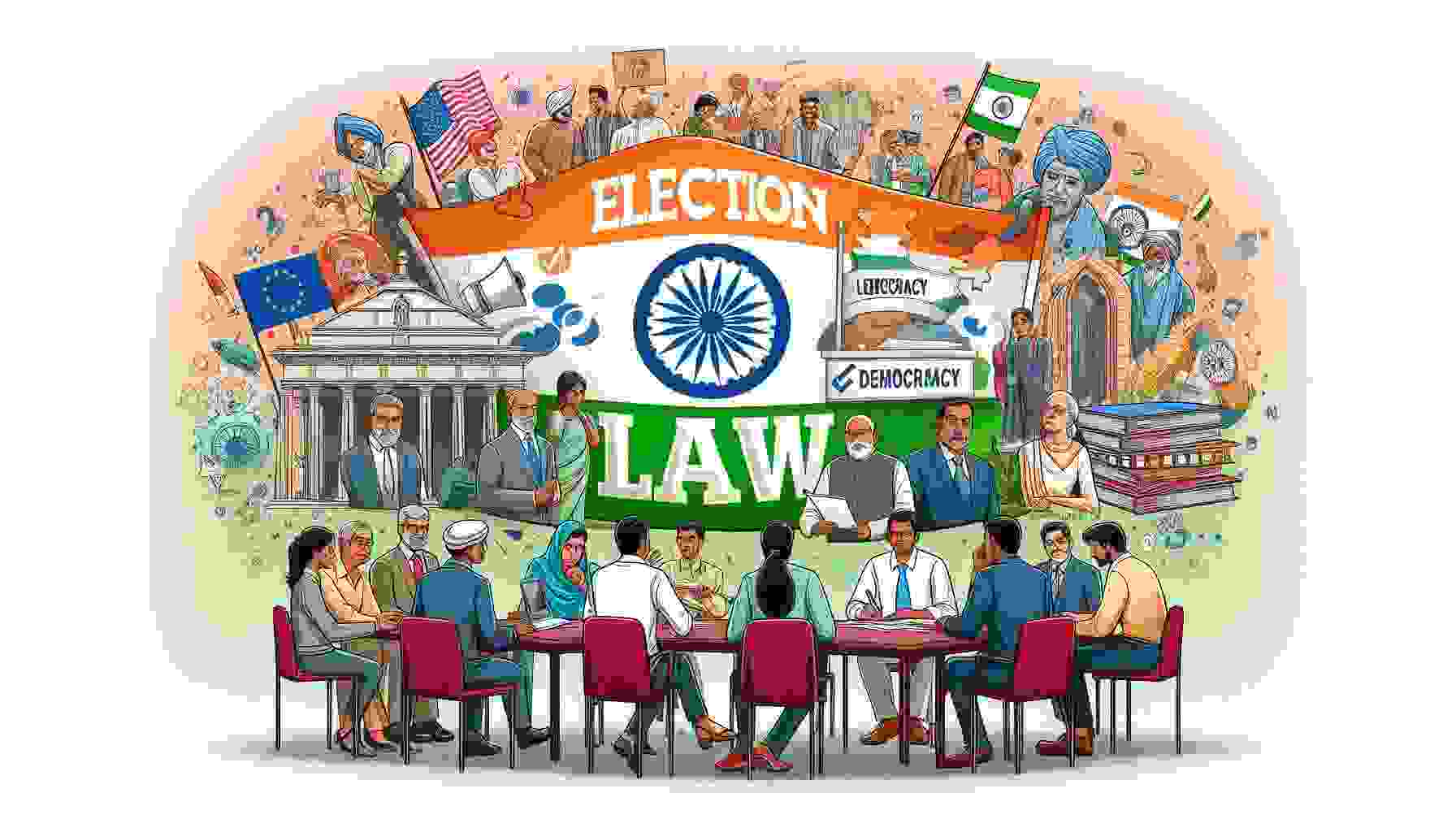

Free and fair elections are the cornerstone of any democracy. In India, a country with over 900 million eligible voters, ensuring that elections are conducted transparently and lawfully is an immense responsibility. This duty falls on the Election Commission of India (ECI), a constitutional body entrusted with supervising and enforcing the electoral process.
The Commission’s role is not limited to overseeing voting days — it also extends to implementing Indian election law, monitoring political conduct, and ensuring compliance with rules before, during, and after elections. This article provides a comprehensive look at the ECI’s role in enforcing election laws, its constitutional mandate, powers, challenges, and how legal resources like LexisNexis assist in understanding its functioning.
The Election Commission of India was established in 1950 under Article 324 of the Constitution. It is responsible for directing, controlling, and conducting elections to the Parliament, state legislatures, and the offices of the President and Vice-President of India.
Its primary role is to ensure that elections are conducted in a free, fair, and impartial manner in accordance with Indian election law, which includes the Constitution, the Representation of the People Acts of 1950 and 1951, and other relevant legislation and rules.
The ECI’s enforcement authority is grounded in a framework of statutes, rules, and guidelines. The major laws include:
The ECI enjoys extensive powers to enforce Indian election law. These powers include:
The Commission supervises all stages of the election process, from notification of polls to counting of votes.
It adjudicates disputes related to recognition of political parties and the allotment of election symbols.
The ECI monitors compliance with the MCC and can censure or even bar candidates and parties for violations.
It can requisition the services of government staff for election duty, ensuring independence from political influence.
The Commission enforces legal limits on election expenses and takes action against candidates who fail to file accurate expenditure reports.
The ECI’s role in enforcing Indian election law is multi-dimensional, involving preventive, regulatory, and punitive actions.
The Commission issues clear guidelines on permissible campaign activities, limits on rallies, use of loudspeakers, and social media campaigning.
The ECI takes action against bribery, voter intimidation, booth capturing, and misuse of government machinery.
Through the Media Certification and Monitoring Committees (MCMCs), the ECI monitors paid news, hate speech, and inflammatory content.
Initiatives like the Systematic Voters’ Education and Electoral Participation (SVEEP) program promote awareness of voting rights and discourage unethical practices.
The ECI enforces election laws through a combination of preventive measures and penalties:
Indian courts have consistently upheld the ECI’s authority in enforcing Indian election law. Some important cases include:
Despite its wide powers, the ECI faces several challenges in ensuring compliance:
For law students, advocates, and policymakers, understanding the ECI’s powers and limitations requires access to reliable legal resources. LexisNexis plays a key role in this by providing:
LexisNexis resources help professionals gain deeper insights into election law, making it easier to understand the legal basis of the ECI’s actions.
To further enhance the ECI’s enforcement role, several reforms have been suggested:
The Election Commission of India stands as the guardian of democratic integrity, ensuring that elections reflect the will of the people rather than the influence of money, muscle, or manipulation. By enforcing Indian election law through constitutional powers, guidelines like the Model Code of Conduct, and active monitoring, the ECI preserves public trust in the electoral process.
For anyone seeking to understand the complexities of election law enforcement, resources like LexisNexis offer valuable legal insights, case law references, and procedural clarity. As India’s democracy evolves, the ECI’s role will only grow more critical in ensuring that elections remain genuinely free, fair, and credible.